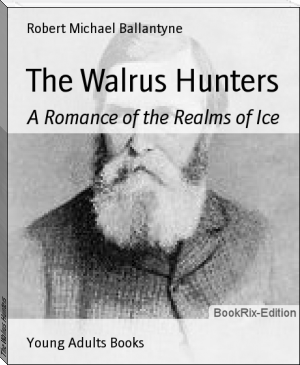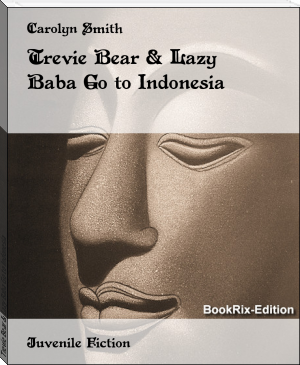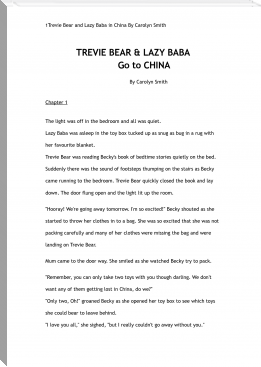The Walrus Hunters by Robert Michael Ballantyne (smart ebook reader .txt) 📖

- Author: Robert Michael Ballantyne
Book online «The Walrus Hunters by Robert Michael Ballantyne (smart ebook reader .txt) 📖». Author Robert Michael Ballantyne
Thus many days were passed without any reference being made to a fight with the Eskimos, and Nazinred, believing that the fancy to go on the war-path had passed away, set off on what was to be a long hunting expedition with three of his comrades who were like-minded with himself. Among other plans, this party intended to visit the establishment of the fur-traders on Great Bear Lake.
Thus when the belligerent party of Eskimos arrived at the mouth of Greygoose, or Whale, River, they found the place, as they had been accustomed to find it, a complete solitude.
At first they expected to overtake their comrade Cheenbuk there, but he was not found, having gone a considerable way inland in pursuit of game. Being aware of his peaceful proclivities, however, the Eskimos were not sorry to miss him, and they set about making an encampment on the shore at the mouth of the river, intending to leave the women there while they should be engaged in hunting and in searching for the Fire-spouters.
Meanwhile these Fire-spouters, having eaten and slept, and eaten and slept again, to the extent of their capacities, began to experience a revival of the war-spirit.
In front of one of the lodges or leather tents, one morning early, there sat two squaws engaged in ornamenting moccasins and discussing the news of their little world.
It was one of those bright genial mornings in spring peculiar to Arctic lands, in which Warmth comes out with a burst victorious, and Cold shrinks away discomfited. Everything looked as if a great revival of Nature were at hand--as in truth it was, for the long Arctic winter is always driven away with a rush by the vigour, if not the violence, of the brief Arctic spring.
One of the women was young and pretty--yes, we might almost say beautiful. It is quite a mistake to suppose that all savages are coarse, rough, and ugly. Many of them, no doubt--perhaps most of them-- are plain enough, but not a few of the Indian squaws are fairly good-looking, and this one, as we have said at the risk of being doubted, was beautiful; at all events she had a fine oval face, a smooth warm-coloured skin, a neat little nose, a well-formed mouth, and jet-black hair, with large lustrous eyes, to say nothing of her teeth, which, like the teeth of most Indians, were regular and brilliantly white. Her name was Adolay--that being the Indian name for Summer.
The other squaw was her mother. She was usually styled Isquay--which means woman--by her husband when he was at home, but, being a great hunter, he was not often at home. Poor Isquay might have been good-looking in her youth, but, alas! hard work, occasional starvation, and a rough life, had prematurely dissipated her beauty, whatever it might have been; yet these conditions could not put to flight the lines and dimples of kindliness which played about her weatherworn eyes and cheeks. You see, she had a gentle, indulgent husband, and that made her happy and kept her so.
"Magadar is stirring up the young men again to go on the war-path," said the younger woman, without looking up from the embroidered moccasin with which she was engaged.
"Yes, I know it. I heard him as he passed our tent talking to Alizay. I don't like Alizay; he is like gunpowder: the least thing sets him off, and he flashes up horribly."
"But many of our other braves have no desire to quarrel with the Eskimos," said Adolay; "indeed, some are even fond of them. And some of the men of the ice are very handsome. Don't you remember that one, mother, that we met when we went last spring with some of our men to shoot at the Greygoose River? He was a fine man--big and strong, and active and kind--almost good enough to be a Dogrib."
"I remember him well," returned Isquay, "for he saved my life. Have you forgotten that already?"
"No, I have not forgotten it," answered the girl, with a slight smile. "Did I not stand on the riverbank with my heart choking me when I saw the ice rushing down with the flood and closing on your canoe--for I could do nothing to help you, and none of our men were near! And did I not see the brave man of the ice, when he heard my cry, come running like the deer and jump into the river and swim like the otter till he got to you, and then he scrambled on a big bit of ice and lifted you and the canoe out of the water as if he had the strength of a moose-deer, after which he guided the ice-lump to the bank with one of your paddles! Forget it! no. I only wish the brave Eskimo was an Indian."
"I think you would be offering to be his squaw if he was," said the mother with a short laugh.
"Perhaps I would. But he's only an eater-of-raw-flesh!" Adolay sighed as gently as if she had been a civilised girl! "But he has gone away to the great ice lake, so I suppose we shall never see him again."
"Unless," said Isquay, "he comes back this spring with his people, and our braves have a fight with them--then you would be likely to see his scalp again, if not himself."
Adolay made no reply to this; neither did she seem shocked at the suggestion. Indeed, Indian women are too much accustomed to real shocking to be much troubled with shocks of the imagination. Holding out her moccasin at arm's-length, the better to note the effect of her work, she expressed regret that her father had gone off with the hunters, for she felt sure he would have been able to allay the war-fever among the young braves if he had remained at home.
"Ay, he would easily have put down Alizay and Magadar; but the old chief can do nothing, he is growing too old. The young men don't mind him now. Besides, he is warlike as well as they."
While they were conversing thus, the young men referred to had finally decided to go on the war-path--to search for the Eskimo who had fought with their chief Nazinred, find him and kill him, and then continue the search for his companions; for they had set him down as a liar, believing that no Eskimo had the courage to visit their hunting-grounds by himself.
To resolve and to act were almost simultaneous proceedings with those energetic savages. In a very short time between twenty and thirty of them left the village in single file, armed with the deadly gun, besides tomahawks and scalping-knives, and took their way to a neighbouring creek on the banks of which their canoes were lying.
CHAPTER FIVE.
A RENCONTRE AND FLIGHT.
Thus it naturally came to pass that the two bands of men who had gone to the same place to meet each other met in the course of time.
There was a good deal of wandering about, however, before the actual meeting took place, for the Eskimos had to provide a quantity of food on landing on the Arctic shore, not only for themselves, but to supply the four women who had accompanied them, and were to be left on the coast to fish and mend their spare garments and boots, and await their return.
"We shall not be long of coming back," said Gartok as he was about to leave his mother, old Uleeta, who was in the crew of one of the oomiaks.
"I wish I saw you safe back, my son," returned the woman, with a shake of her head, "but I fear the Fire-spouters."
"_I_ don't fear them," returned the young man boastfully, "and it does not matter much what you fear."
"He will never come back," said one of the other women when he was gone. "I know that because I feel it. There is something inside of me that always tells me when there is going to be misfortune."
The woman who thus expressed her forebodings was a mild young creature, so gentle and inoffensive and yielding that she was known throughout her tribe by the name of Rinka, a name which was meant to imply weakness. Her weakness, however, consisted chiefly in a tendency to prefer others before herself--in which matter Christians do not need to be told that she was perhaps the strongest of all her kin.
As the weather was comparatively warm, the women contented themselves with a tent or bower of boughs for their protection. They were not long in erecting it, being well accustomed to look after themselves. In less than an hour after their men had left them they were busy with seal-steaks over the cooking-lamp, and the place was rendered somewhat home-like by several fur garments being spread on the rocks to dry.
"Yes, Gartok will get himself killed at last," said old Uleeta, drawing her finger across the frizzling steak and licking it, for her appetite was sharp-set and she was impatient, "He was always a stubborn boy."
"But he is strong, and a good fighter," remarked Rinka, as she spread a seal-skin boot over her knee with the intention of patching it.
"I wish all the other men were as strong as he is, and ready to fight," said one of the other women, giving the steak a turn.
It must not be supposed that, although the Eskimos are known to their Indian friends--or foes--as eaters-of-raw-flesh, they always prefer their food in the raw condition. They are only indifferent on the point, when the procuring of fire is difficult, or the coldness of the weather renders it advisable to eat the flesh raw, as being more sustaining.
"I only wish that they would not fight at all," said Rinka with a sigh, as she arranged the top-knot of her hair. "It makes the men too few and the women too many, and that is not good."
The fourth woman did not express an opinion at all. She was one of those curiously, if not happily, constituted creatures, who seem to have no particular opinion on any subject, who listen to everything with a smile of placid content, who agree with everybody and object to nothing. They are a sort of comfort and relief in a world of warfare--especially to the obstinate and the positive. Her name was Cowlik.
"There is no reason why we should continue to roast our seal-meat over a lamp now," observed old Uleeta. "There is plenty of wood here. Come, we will gather sticks and make a fire."
The others agreeing to this, three of them rose and went into the bush, leaving Cowlik to watch the steaks.
Meanwhile the young men who had followed the lead of Gartok--fifteen in number--were cautiously ascending the Greygoose River, each in his kayak, armed with a throwing-spear, lance, and bow. One of their number was sent out in advance as a scout. Raventik was his name.





Comments (0)